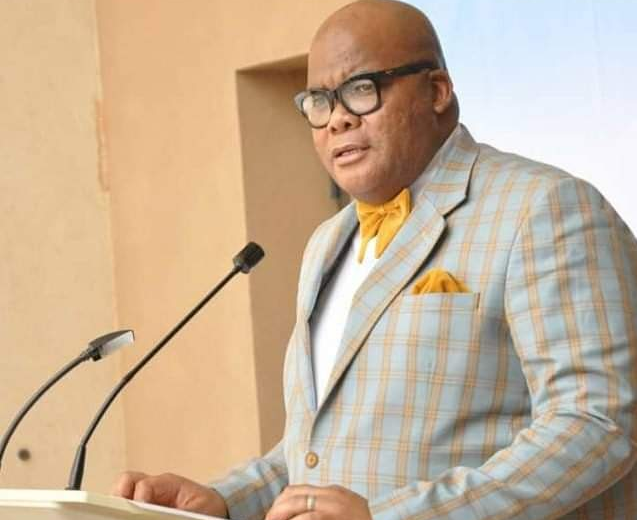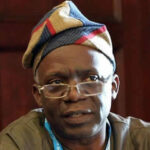By Bobby J. Moroe
In order for the continent to industrialise, South Africa and Nigeria, as the two biggest economies in Africa, must lead the charge and put into place mechanisms and interventions to mitigate the current challenges of poverty, inequality and unemployment. The two continental giants, with their buoyant economies and vibrant youth, are poised to change existing perceptions about the developmental trajectory of the entire continent.
They are better placed to deliberately work together to demystify the stigma attached to the notion that Africa is rich with mineral resources, yet remains home to the most poorest people in the world. A lot has been written about this narrative, but little has been done to change the narrative. In one amongst his inspiring quotes, Nelson Mandela reminds humanity that, ‘“Like slavery and apartheid, poverty is not natural. It is manmade, and it can be overcome and eradicated by the actions of human beings. And overcoming poverty is not a task of charity, it is an act of justice. Sometimes, it falls on a generation to be great. You can be that great generation. Let your greatness blossom.”
It is upon the current generation of our youth to eradicate the scourge of poverty, but they cannot do it alone. They will need the support of those who did it before, including the support of government, private sector and other key institutions and stakeholders. In 1675, scientist, Isaac Newton wrote a letter to associated scientist Robert Hooke which contained this powerful quote succession, support and mentorship, “If I have seen further, it is by standing on the shoulders of giants.” What this means is that, in order to gain more insights about what needs to be done to overcome poverty, the youth of today can tap on the wells of wisdom of those who have come before. Similarly, they too should leave the traces of their footprints for posterity.
The time has come for the governments of both countries to initiate a youth-led dialogue between the youth of their respective countries By so doing, they will be bringing their young people together to exchange knowledge, appreciate each other, and inspire each other to hope and act in unison towards the eradication of inequality, poverty and unemployment. Situated in two opposite ends of the continent, the youth of Nigeria and South Africa share similar developmental challenges, and common aspirations. Despite their various stations in life, one common attribute is that they too aspire to succeed, and push back the frontiers of poverty in their communities. Many of the youth in both South Africa and Nigeria are armed with a multiplicity of skills which can be exchanged and shared amongst themselves through various training programmes. They possess enough energy to contribute to the growth of their respective economies through a variety of activities.
According to Young Africa Connects, before the end of the 21st century, more than a billion young people will reach working age, making it the largest labour market in the world. As the job market becomes competitive, employers expect African youth to have relevant and employable skills. However, the notion that African youth lack skills is often grossly misplaced, and only linked to skills that are required at formal workplace. Today, most African youth possess skills, but they do not match skills required at workplace – this must not, therefore, suggest that are unskilled. They are just skilled differently, outside the often Eurocentric definition of what constitute a skilled person. Individually and collectively, the youth of today are able to make things happen for themselves. What they only require is the necessary support from both private sector and government.
Both South African and Nigerian youth are ambitious, enthusiastic, energetic and promising – they are an asset. Many of them are tech savvy, and involved online business activities through social media. Today, it is not unusual to buy a variety of products through social media platforms. Those who are not involved in online business platforms are selling food, clothes, accessories, and hair and beauty products, amongst others. They are active and vibrant contributors to the economic growth of their respective countries. However, they are considered vulnerable in society because of the rapid pace of change they experience at this time in their lives. The unemployment or umeployability of youth in Africa aggravates efforts made governments to grow their respective economies, with anticipated participation by the youth. This phenomenon has also led to social immoralities amongst the youth themselves.
Bringing the youth of both countries together is essential in mitigating and circumventing the prevalent social immoralities borne by unemployment. There is a lot that can be done to advance the course of the youth. One area that has received little attention amongst the youth is the appreciation and understanding of Indigenous Knowledge System (IKS). The IKS can be used as a tool to enhance and promote the rich diversity and complementarity of their respective cultures, home-grown philosophies and indigenous languages as resources for social cohesion, unity, job and wealth creation.
The concept of IKS refers to bodies of knowledge, technologies, skills, beliefs and value systems, including home-grown philosophies, produced locally among the diverse cultural communities in both South Africa and Nigeria, and traditionally transmitted orally from one generation to the next. Indigenous Knowledge Systems, therefore, are outcomes of generations of diverse cultural communities’ long observation, experimentation and lived experiences in the symbiotic relationship between their cultural and natural environments. These knowledge systems and home-grown philosophies are stored and articulated in diversity of indigenous languages, art forms, food cultures, textile designs, healthcare and wellness practices. For example, the youth of both countries can host, on rotational basis, indigenous food and music festivals, indigenous knowledge exchange programmes on herbs, indigenous textile fashion shows, art and film festivals. These are tangible and pragmatic programmes in which partnership can be sought with the private and public sectors of both countries.
As a matter of fact, Africa in general, and South Africa and Nigeria in particular, have always been sources of creativity and inspiration for Non-African global designers, musicians, painters, and other categories of artists. Yet the continent accounts for approximately 5% of the global market for these industries, and the role of the private sector has been minimal in the promotion of these industries for job and wealth creation, among the African youth. Such projects will be key in building joint IKS-based business and investment programmes for social cohesion, unity, job and wealth creation. Clearly, if the youth of both countries can be organised, and brought together under one umbrella to engage, a lot can be achieved between the two countries.
The philosophy of building on the indigenous is not necessarily what is traditional, but whatever the youth in both countries, in their cultural and ecological diversity; consider being an authentic expression of themselves, as Africans, and as a conduit to bring them together towards a common good. This is based on the consideration that Africa’s history of slavery, colonization, apartheid and other forms of imperialism including globalization, destroyed the sense of confidence among the African youth, and further divided and polarised them. The marginalization of diversity of African cultures is inextricably linked to that of African indigenous Knowledge systems (AIKS) including home-grown philosophies and indigenous languages.
For many years, Africa’s rich diversity of cultures and languages was portrayed as a developmental problem rather than an asset in the complementarity of knowledge systems for the search of sustainable solutions to global developmental challenges. The African indigenous languages have been reduced to mere tools of communication rather than as repositories of indigenous scientific, technological and innovative knowledge systems for sustainable community livelihood and development. The inherited colonial and apartheid formal education perpetuate this marginalization by looking at AIKS and African languages as unscientific and primitive, and promotes the acceptance of a Eurocentric approach to education. This is despite the fact that the majority of Africans, including the African youth in the marginalized communities of the two countries, still depend on IKS for livelihood. For example, for food security, there are still patches of vegetables gardens in many families, and in as far as healthcare and wellbeing are concern, most of the ingredients used are sourced from indigenous plants. These are some amongst the tangible IKS-based forms of living and income generation.
The idea to bring together youth from both countries is, in part, based on the increasing realization that, despite the rich diversity of cultures associated with IKS in the two countries, coupled with the high level of potentials inherent in South African and Nigerian youths, such as their digital knowledge, skills and interest in ICTs, there are limited strategic platforms focusing on promoting the role of youth-led cultural and creative industries to mitigate the challenges of youth unemployment, poverty and inequality including competition for scarce socio-economic resources and other life opportunities. These persistent challenges, if left unattended, could lead to other forms of conflict among the youth as they compete for limited resources.
Through an organised dialogue, they can come together and create opportunities for themselves and those who will come after them.
The advent of COVID-19 pandemic has greatly affected the cultural and creative industry, worldwide, and this is where the majority of the marginalized youth are engaged. In this regard, it is important that the private sector of both countries support these initiatives. South Africa and Nigeria, as the largest economies in Africa, can leverage on their sizeable, diverse and dynamic private sector, to facilitate and support the building of youth-led digital cultural and creative industries for job and wealth creation in times of the pandemic. In order to take the first step forward in realising such a form of social cohesion, there will be a need to develop a database of identified/relevant youth organizations, the private sector and other stakeholders, in both countries, as champions, who could promote and contribute to the effective implementation and impact on the project initiative.
It will also be critical that a concept note is shared with the private sector and other stakeholders, in both countries, outlining the methodology to be used towards achieving enhancement of social cohesion between the youth of South Africa and Nigeria through IKS. Furthermore, establishing a steering committee and focal points, comprised of stakeholders from both countries, including the private sector, will be key in driving the process of establishing a formal platform where the youth can come together. Convening a youth task team and convening regular meetings will assist in setting the ball rolling towards formal engagement about pragmatic programmes. The task teams may be established according to Communities of Practice (art forms, food cultures, textile designs, etc.) to profile the rich knowledge and skills among the youth in both countries which could contribute to the establishment of digital cultural and creative industry platforms for job and wealth creation. A concise and unambiguous roadmap will become a strategic mechanisms to implement the project initiative, including building partnerships with diverse stakeholders. Through an organised platform/dialogue, the voices of the youth will be strengthened, their role in society will be clearly defined, their commitment to be creative will be revealed. After all is said and done, the youth of South Africa and Nigeria carry with them great potential to build on what the two group have achieved in their bilateral relations. They are poised to ensure to do their bit in building a sustainable future through the indigenous, in transforming the rich diversity of the natural, cultural, and linguistic resources of South Africa and Nigeria into goods and services for social cohesion, job and wealth creation.
Moroe, the Deputy High Commissioner of South Africa in the Federal Republic of Nigeria, holds a PhD in Political Science. He writes in his personal capacity.

 Join Daily Trust WhatsApp Community For Quick Access To News and Happenings Around You.
Join Daily Trust WhatsApp Community For Quick Access To News and Happenings Around You.



